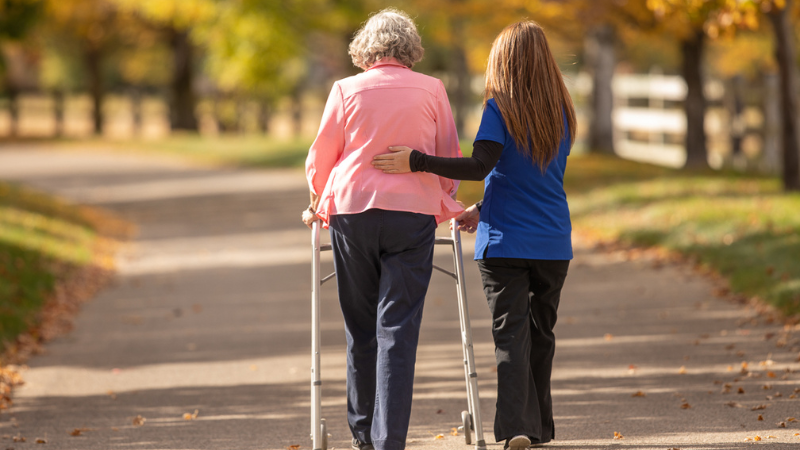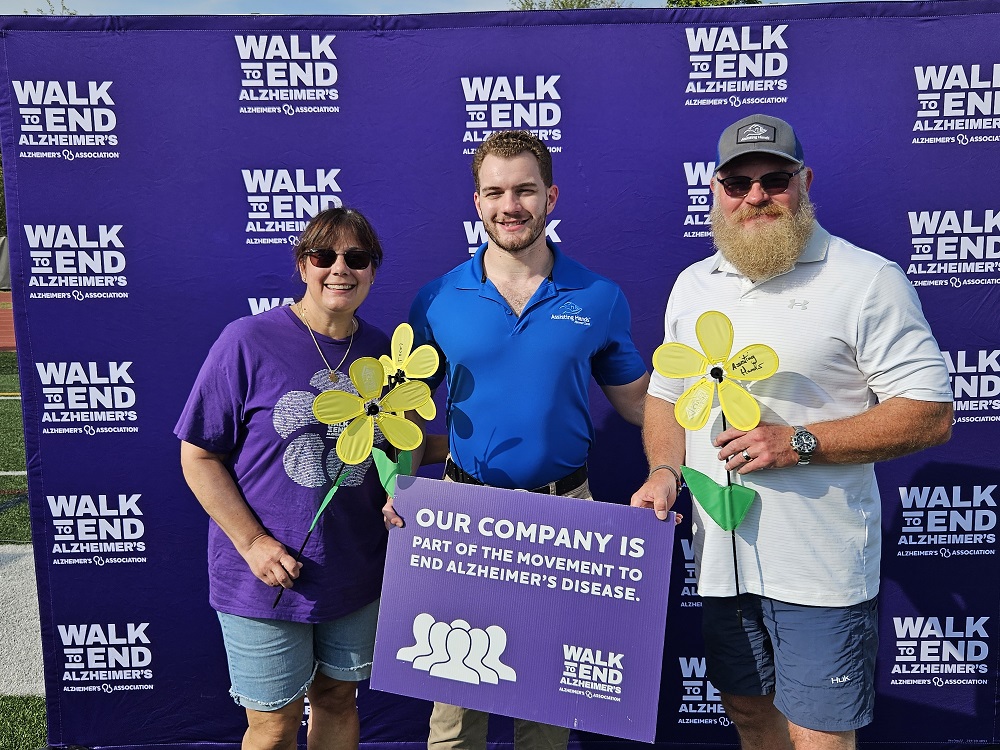The amount of oxygen in the blood is known as the blood oxygen level. It is measured using a device called a pulse oximeter. A low blood oxygen level is dangerous to a senior’s health—and the individual may need medical attention. Here’s how to increase low blood oxygen levels.
Oxygen is delivered throughout the body via red blood cells. These cells gather oxygen from the lungs, then carry it to parts of the body. An adequate level of blood oxygen allows an older adult to perform a variety of everyday activities.

What is a healthy blood oxygen level?
Seniors typically have less oxygen saturation levels than younger adults. An adult who is 70 years or older requires a blood oxygen level of 95 percent. A low blood oxygen level can lead to conditions, like hypoxemia and hypoxia, and a level below 90 percent requires that a caregiver call 911.
Hypoxemia occurs when the senior has a blood oxygen reading between 90 and 92 percent. Hypoxemia can cause hypoxia, which is when the bodily tissues are undernourished with oxygen. Older people can develop either hypoxemia or hypoxia from numerous everyday causes.
What causes low blood oxygen?
Pain medications, for instance, can cause breathing difficulties in seniors, and result in low oxygen levels. Health conditions, like anemia, heart problems, severe asthma attacks, and sleep apnea, can also be responsible for lowering blood oxygen levels in aging adults.
If a senior undergoes a trauma and suffers lung damage, low blood oxygen levels occur. Common lung diseases, such as emphysema, bronchitis, pneumonia, and pulmonary edema are known to cause low blood oxygen in older people. Similarly, chronic obstructive pulmonary disorder (COPD) can cause it.
How do seniors increase blood oxygen levels?
1. Go for a walk
Caregivers can help elderly care recipients increase their blood oxygen levels naturally. Fresh air can do wonders for the senior’s health, including blood oxygen levels. Caregivers might accompany the senior on a walk outside to increase the amount of oxygen she inhales.
Aerobic exercises, like walking, help the senior’s body better utilize oxygen. Caregivers should schedule a 30-minute walk with the senior every day to help the care recipient maintain good respiratory health. While the aging person’s blood oxygen levels increase, so do their mood and confidence.

2. Open a window
Opening a window on a temperate day can also deliver a healthy dose of oxygen into a senior’s body. As the senior breathes in the fresh air, they experience an increase in their blood oxygen level. A double benefit is that breathing fresh air improves digestion and delivers greater energy.
3. Quit smoking
Seniors who smoke cigarettes should quit. Caregivers might encourage an elderly individual to give up their daily habit, considering two weeks of not smoking improves the senior’s circulation as well as overall oxygen levels. Lung function gets a 30 percent boost within this brief time span.
4. Grow houseplants
Houseplants not only add beauty to a home, but they help purify indoor air. Seniors might grow a plant, such as a spider plant, a snake plant, or a bamboo palm, all of which are top plants for indoor air purification.
Plants remove carbon dioxide and release oxygen into the room, allowing aging people to absorb more oxygen into their bodies. Chrysanthemums are notable for their air purification abilities. The mums not only purify air but remove common toxins and ammonia.
5. Hydrate
Serve the senior plenty of beverages throughout the day. Seniors who are adequately hydrated have lungs that are better able to distribute oxygen through their bloodstream. Filtered water is recommended to improve oxygenation, as it consists of smaller groups of water molecules.
6. Eat nutritiously
Along with hydration, nutrition keeps a senior’s blood oxygen at an acceptable level. Prepare foods rich in antioxidants, which increase the aging adult’s oxygen intake during digestion. Make smoothies with cranberries, blackberries, or plums. Red kidney beans are also full of antioxidants.

7. Perform breathing exercises
Simple breathing exercises can help older adults open their airways and increase the amount of oxygen in their bodies. Examples of recommended breathing exercises include pursed-lip breathing as well as deep belly breathing. Encourage breathing slowly from the diaphragm and through the nose, not mouth.
Caregivers can easily check an elderly loved one’s blood oxygen levels at home using a pulse oximeter. This device clips to the senior’s finger and measures the ratio of red blood cells that carry oxygen against those that do not, thereby calculating the level of blood oxygen.
A healthy reading is between 95 and 100 percent; but as mentioned, seniors may have a reading at the lower end of this range. If the reading is within this range, it means nearly all the senior’s red blood cells are carrying oxygen to their bodily cells and tissues.
Checking a senior’s blood oxygen level can be done quickly and easily by a caregiver from Assisting Hands Home Care. We are a leading elder care agency focused on improving the daily health and safety of aging adults. We’ll provide your elderly loved one with reliable non-medical home care services.

Professional caregivers support seniors with the activities of daily living. Responsibilities include help with personal hygiene tasks, transportation to doctors’ offices or social events, grocery shopping, meal preparation, light housekeeping, medication reminders, and vital companionship to prevent loneliness and social isolation.
Assisting Hands Home Care offers a range of specialty care services. Our dementia caregivers are trained and experienced in caring for Alzheimer’s patients. We are also available for live-in care, 24-hour care, post-hospitalization care, and overnight care. Our respite care is a major help for family caregivers.
Choose Assisting Hands Home Care when your aging loved one in Batavia, Illinois, is in need of quality senior home care. We’ll ensure the aging adult remains hydrated, eats nutritiously and takes all medications. Call today to schedule a complimentary in-home consult and start home care.














